featured
Study: Daily Cannabis Consumers Exhibit Few Changes in Simulated Driving Performance Compared to Controls
Published
13 hours agoon


Daily consumers exhibit tolerance to the acute psychomotor-influencing effects of cannabis, according to driving simulator data published in the journal Traffic Injury Prevention.
Researchers affiliated with the University of Colorado Anschutz. Medical Campus assessed simulated driving performance in a cohort of daily cannabis consumers, occasional consumers, and controls (non-users). Daily users consumed either high-potency cannabis flower or concentrates containing, on average, 78 percent THC. Occasional consumers only inhaled cannabis flower. All consumers used cannabis ad libitum for up to 15 minutes. Study participants drove on a computer simulated course 20 minutes following cannabis consumption and once again 80 minutes later.
Consistent with prior studies, daily consumers exhibited few changes in psychomotor performance compared to controls. Specifically, daily consumers demonstrated improvements in SDLP (standard deviation in lateral positioning) following cannabis ingestion. Both daily and occasional cannabis consumers reduced their speed following cannabis use, whereas those in the control group typically increased their speed.
Unlike daily users, occasional cannabis consumers exhibited minor detriments in SDLP performance following cannabis inhalation. However, these changes were not statistically significant compared to controls (whose follow up SDLP performance also deviated from their baseline).
“The relative absence of significant differences in driving performance after cannabis across participants groups was somewhat surprising, given the high THC concentration of product used, and the relatively high level of self-reported drug effect,” researchers reported. “It was notable that the daily use group who inhaled concentrates showed the least number of significant differences as compared to the control group, having little to no change in the average SDLP and speed across the three drives. The absence of decrements in driving performance (assessed by lane departures or SDLP) among the daily-concentrate group is consistent with tolerance to acute impairing effects of cannabis.”
Researchers also failed to identify any correlations between THC/blood concentrations and impaired driving performance – a finding that is also consistent with other studies. “These findings reaffirm that the presence of THC in blood is an inconsistent and largely inappropriate indicator of psychomotor impairment in cannabis consuming subjects,” NORML’s Deputy Director Paul Armentano said. Accordingly, NORML has long opposed the imposition of per se THC limits for motorists and has alternatively called for the expanded use of mobile performance technology like DRUID.
The study’s authors concluded: “Taken as a whole, these findings indicate that acute cannabis use impaired driving performance more among the participants with a pattern of non-daily use (less than 4 times per week). … The absence of decrements in driving performance in the daily use groups support a role of tolerance in mitigating acute impairment. When changes in driving performance were observed, the effect size was notably small. These findings underscore the challenges of developing standardized impairment thresholds in the presence of large inter-individual variability in driving performance, and tolerance to cannabis with daily use.”
An abstract of the study, “Impact of cannabis use on lateral control and speed: A driving simulator study,” appears online. Additional information is available in the NORML fact-sheet, ‘Marijuana and Psychomotor Performance.’
Related

Author: mscannabiz.com
MScannaBIZ for all you Mississippi Cannabis News and Information.
You may like
-


Marijuana And Drug Groups Press Meta About Shadowbanning And Censorship Of Content On Facebook And Instagram
-
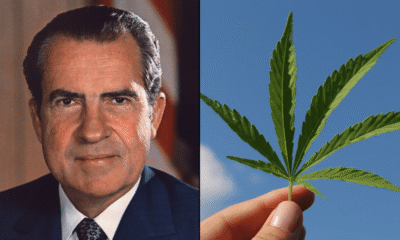

DEA Museum Highlights Pen That Nixon Used To Sign Modern War On Drugs Into Law
-
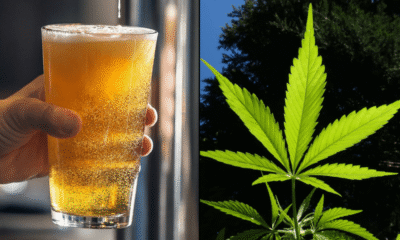

CBD From Cannabis Could Help Reduce Alcohol Binge Drinking, Study Shows
-


Gen Z Is Ditching Relationship Labels While Millennials
-


Florida Lawmakers Pass Bill To Revoke Medical Marijuana Cards From People With Drug Convictions, Sending It To DeSantis’s Desk
-


North Carolina Lawmakers Advance Bill To Regulate Hemp THC Products And Restrict Kratom
featured
Marijuana And Drug Groups Press Meta About Shadowbanning And Censorship Of Content On Facebook And Instagram
Published
24 minutes agoon
June 18, 2025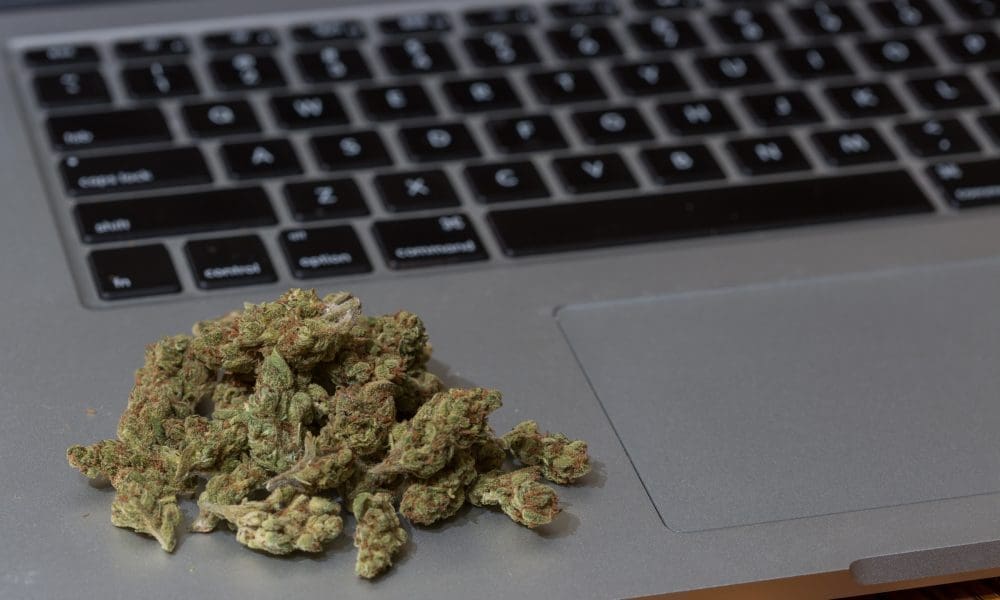
Nearly 100 organizations in the U.S. and abroad have signed on to an open letter to Meta—the social media behemoth behind Facebook, Instagram and Threads—condemning the company for its censorship of marijuana- and drug-related content, which can limit users’ access to health, policy reform and educational materials.
“Accounts committed to public education, legal and policy advocacy, research dissemination, and harm reduction services—including those of licensed healthcare professionals, nonprofits, and legal businesses—have been routinely shadowbanned, deplatformed, or had their posts removed with little explanation or recourse, despite operating in full compliance with local laws,” says the letter that was sent on Monday.
“This suppression is not merely an inconvenience,” the letter, which was led by Students for Sensible Drug Policy (SSDP), adds; “it is a form of digital marginalization.”
Among the dozens of other groups that have already signed on to the statement are Drug Policy Alliance (DPA), Marijuana Policy Project, NORML, Harm Reduction International and others in the U.S., Europe, Latin America, Africa and Asia.
“Censorship of science, public health, legal, and public policy discourse is not an act of neutrality; it causes harm.”
As of Monday, the petition is also open for individuals to add their names.
“So many groups we work with have been flagged for promoting get out the vote efforts, policy panels and events, information about preventing opioid overdoses, and more,” SSDP’s executive director, Kat Murti, said in a statement.
SSDP has also repeatedly faced challenges with its own social media accounts, Murti said, “greatly limiting our ability to reach our audience and hobbling our efforts to reduce harmful drug use and promote necessary policy change.”
At the beginning of this year, Meta announced that it was revising its content moderation policies and “getting rid of a number of restrictions…on topics…that are the subject of frequent political discourse and debate.” It was part of the company’s move away from intensive moderation of controversial topics like immigration and gender.
The company didn’t immediately change its practices around marijuana—continuing to block search results on its platform for terms such as “marijuana” and “cannabis” and instead displaying a notice encouraging users to report “the sale of drugs.”
While the company appears to have quietly updated that practice, the letter says that Meta continues to disproportionately and overzealously target topics such as cannabis, psychedelics and harm reduction.
The letter urges Meta to make five specific reforms to ensure access to what it calls “crucial conversations impacting the health and wellbeing of our community”:
- End discriminatory bans and shadowbans on accounts related to cannabis, psychedelics, and harm reduction when they operate within legal guidelines.
- Establish clear, transparent, and consistent content policies that distinguish between promotion of the sale of illegal substances and legitimate drug education and advocacy.
- Create a dedicated appeals and accountability process specific to drug-related content that includes community stakeholders and subject-matter experts.
- Engage in regular dialogue with the psychedelic, cannabis, and harm reduction communities to better understand our work and co-create equitable guidelines for content moderation.
“Censorship of science, public health, legal, and public policy discourse is not an act of neutrality; it causes harm,” the letter concludes, noting the increasing scientific evidence for the effectiveness of cannabis and psychedelic therapies. “As the cultural and legal landscapes around these issues evolve, so too must your policies.”
SSDP’s Murti said the group alerted Meta to obstacles caused by the company’s censorship more than a year ago, but that it is “continuing to see members of our community be deprived of access to online fundraising tools and digital advertising.”
Groups have also been “denied the opportunity to livestream panels and other events” and had posts about science, health and public policy “be artificially limited in reach,” she said. In some cases, Meta has also deactivated accounts.
While many platforms have policies against the illegal sale of drugs or require age-gating for content around controlled substances, critics say Meta’s filtering has often been overbroad.
SSDP asserted in a press release on Monday, for example, that “cannabis and psychedelic-related content, as well as public health information about drug checking and lifesaving naloxone, is backed by education, research, and blossoming legislative reform, yet Meta’s moderation policies fail to distinguish between illegal activity and legal, evidence-based content meant to educate and support communities.”
It’s unclear when Meta may have enacted the recent change to search filtering, nor has the company said whether other changes are forthcoming. Meta and Facebook press contacts did not responded to emails from Marijuana Moment sent on Friday.
Morgan Fox, political director at NORML, said last week that he hoped the search issue had been fixed for good.
“I hope these apparent changes are permanent and pervasive, and not just a temporary fix with limited scope—which we have seen in the past,” he wrote in an email to Marijuana Moment. “Without structural changes to content moderation and a clear process for addressing instances of inappropriate censorship in a more systemic manner, advocates and educators are going to have to remain vigilant to ensure that social media platform users can continue to effectively access their information.”
It’s an issue the legal cannabis industry has long grappled with. Fox noted in an email on Monday that he first started a petition on the issue in 2018 on behalf of the National Cannabis Industry Association (NCIA).
“It looked like the issue had been resolved for a while,” he said, “but it was only temporary.”
One cannabis-focused content creator who’s called out Meta in the past is cartoonist Brian “Box” Brown, who’s previously complained to Marijuana Moment that the company has flagged his posts, limited his accounts’ visibility and “killed my reach and growth.”
“My mind was boggled,” he said earlier this year. “My comic strip thats frankly TOO wonky about policy is getting flagged for selling drugs.”
In an email last about the search function, Brown said he’s picked up on a shift in Meta’s handling of his and others’ content.
“It’s weird,” he said. “I’m not even totally sure what’s happened. *Something* has changed. Stuff isn’t getting suppressed in the way it was before. But at the same time, it kinda is.”
Unlike in recent months, “I’m not getting warnings every day,” the cartoonist continued, but some posts still seem to get throttled.” He noted that other accounts, such as “a bunch of hashmakers and other influencers” have moved to other platforms after Meta “nuked” their accounts.
“It’s kind of a mixed bag,” he said, adding that he’s going stop censoring his own content—which he’d begun doing to avoid being flagged by the company’s algorithms—and see what happens going forward.
Ahead of this past holiday season, vape device manufacturer Puffco similarly complained about Instagram and parent company Meta for what it described as an overly aggressive campaign to flag and remove cannabis-related content. A video from the company asserted that Instagram’s policing of cannabis posts by brands and individuals effectively stifles efforts at community building among veterans, medical marijuana patients and legal adult-use consumers.
“The world didn’t want us, so we made a safe space for our community on Instagram where we could just be ourselves and share what we love,” the video said. “Isn’t that the point of this place?”
Despite more and more states having legalized and regulated marijuana for adults, social media companies have regularly flagged cannabis-related content as violations of their terms of service. The practice has led to suspensions of accounts belonging to state-regulated cannabis brands, informational websites and individual content creators, who now often create backup accounts to avoid the loss of a key line of communication to thousands of followers.
In 2018, concerns arose that Facebook was “shadowbanning” marijuana pages, including those of state cannabis regulatory agencies, by blocking them from search results. An internal presentation at the company the next year noted that it was considering loosening cannabis restrictions, but many have continued to run into problems
In July 2023, Meta announced that it had updated its cannabis advertising policy to permit the promotion of some non-ingestible CBD products and also loosen restrictions on hemp ads. It said businesses could begin promoting the sale of CBD if they receive written approval from Meta and if the products are certified with the payment compliance company Legitscript and comply with local laws. Ads also could not target people under 18.
“We want people to continue to discover and learn about new products and services on our technologies,” Meta said. However, it added that “advertisers will continue to be prohibited from running ads that promote THC products or cannabis products containing related psychoactive components.”
Earlier that year, Meta faced criticism over a feature of its microblogging app, Threads, for prompting users with a “get help” message about federal substance misuse resources if they searched for “marijuana,” various psychedelics and other controlled substances. Meanwhile, alcohol- and tobacco-related searches were exempt from the prompt. The feature no longer appears to be in place.
Twitter, now known as X, had a similar practice in place in 2020, cautioning users about “marijuana” searches as part of a partnership with SAMHSA. Alcohol and tobacco were excluded from the search restriction. But in late 2022, after being acquired by Elon Musk, Twitter suspended that practice.
Also, Twitter since updated its cannabis advertising policy, aiming to give cannabis businesses that are “certified advertisers” the ability to feature “packaged” cannabis products in the ad creative that’s promoted on the social media site.
Google, for its part, updated its policy in January 2023, making it so companies can promote Food and Drug Administration- (FDA) approved drugs containing CBD, as well as topical CBD products with no more than 0.3 percent THC.
Video game streaming company Twitch, meanwhile, updated its branding policy for streamers, prohibiting promotions of marijuana businesses and products while explicitly allowing alcohol partnerships. Twitch had previously clarified rules in a way that was inclusive of cannabis—exempting marijuana-related references from the list of banned usernames, just as it does for alcohol and tobacco.
In an update to Apple’s iPhone software that was instituted in 2022, users were given an option to track medications and learn about possible drug interactions with other substances—including marijuana.
In 2021, Apple ended its policy of restricting cannabis companies from conducting business on its App store. The marijuana delivery service Eaze subsequently announced that consumers were able to shop and pay for products on its iPhone app for the first time.
In contrast to Apple, Google’s Android app hub updated its policy in 2019 to explicitly prohibit programs that connect users with cannabis, no matter whether it is legal in the jurisdiction where the user lives.
In 2022, New York marijuana regulators asked the social media app TikTok to end its ban on advertising that involves the word “cannabis” as they worked to promote public education on the state’s move to legalize.
Read the full SSDP sign-on letter to Meta below:
Snoop Dogg Expands His Cannabis Brand Again, With New THCA Hemp Product Sales Website

Author: mscannabiz.com
MScannaBIZ for all you Mississippi Cannabis News and Information.
featured
DEA Museum Highlights Pen That Nixon Used To Sign Modern War On Drugs Into Law
Published
1 hour agoon
June 18, 2025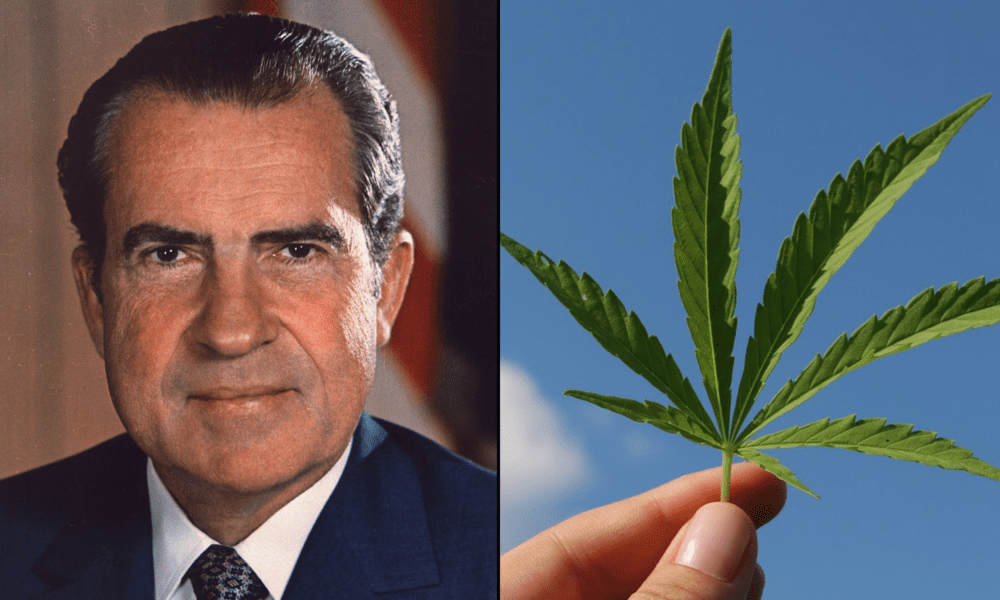
One of the featured exhibits at the Drug Enforcement Administration (DEA) Museum—which attempts to put a fun, exciting spin on America’s war on drugs—is a relic that helped give shape to federal prohibition: the pen that then-President Nixon used in 1970 to sign the modern drug war into law.
The pen and a signed photo of Nixon endorsing the Comprehensive Drug Prevention and Control Act is featured on an episode of Stories From the Collection, a video series from the DEA Museum intended to “take you into the collection to share stories about our most exciting objects,” according to the video’s host, Museum Technician Emma Miller.
“This set includes a signed photograph copy of the first page of the Comprehensive Drug Prevention and Control Act, and a pen used by President Nixon to sign it into law,” Miller explains in the video. “It commemorates a pivotal moment in federal drug law enforcement.”
Title II of the federal statute is the Controlled Substances Act (CSA), which created five schedules of substances—Schedule I to Schedule V—based on the government’s perception of their medical value and potential for abuse.
Fifty-four years ago Tuesday—on June 17, 1971—Nixon famously stepped up America’s war on drugs, declaring substance misuse “public enemy number one” and requesting increased funding for prevention.
“In order to fight and defeat this enemy, it is necessary to wage a new all out offensive,” he said. “I’ve asked the Congress to provide the legislative authority and the funds to fuel this kind of an offensive.”
The pen used to sign the federal drug law, which took place the previous October, was a gift from Nixon to Jack Ingersoll, who at the time was the director of the Bureau of Narcotics and Dangerous Drugs, which later became DEA.

“This framed set commemorates the creation of a law that is still widely utilized by DEA,” Miller said in the video, adding that the writing instrument is “only one of over 45,000 artifacts, photographs, videos and documents in the DEA Museum’s collection. Each illuminates important moments in the history of DEA, federal drug law enforcement and drug use in American culture.”
Earlier this year, the drug policy publication Filter visited the DEA Museum in order to—as senior editor Helen Redmond critically put it—“see all the lies and misinformation in one place” and “understand how the curators sold and sanitized the war on drugs.”
“I was not disappointed,” Redmond wrote in an op-ed, concluding that “The fiction that permeates the museum is that the DEA is somehow winning a drug war that is justified.”
DEA is widely seen as ideologically committed to the drug war—a commitment that former President Joe Biden’s drug czar recently said may have compromised the government’s effort to move marijuana from the most-restrictive Schedule I of the CSA to Schedule III.
About five months into President Donald Trump’s second term, there has still been no movement on the pending plan to reschedule cannabis, leaving advocates and stakeholders frustrated by both the current inaction as well as the Biden administration’s failure to get the job done.
According to former White House Office of National Drug Control Policy (ONDCP) Director Rahul Gupta, that may have been due to deliberate resistance from within DEA—a suspicion shared widely among supporters of the reform, including those involved in an administrative hearing that’s been stalled for months, with no clear indication it will proceed any time soon.
What happens next in the process is uncertain, especially ahead of the potential Senate confirmation of Trump’s pick to lead DEA, Terrance Cole, who has declined to say whether he supports the proposal but has previously voiced concerns about the dangers of marijuana and linked its use to higher suicide risk among youth.
Trump, for his part, has not publicly weighed in on cannabis reform since taking office, and the White House did not include rescheduling in a recently released list of drug policy priorities for the administration.
Other former DEA and HHS officials have separately expressed their sense that, if rescheduling is going to happen, the president will need to proactively demand its completion.
Former Rep. Matt Gaetz (R-FL), meanwhile—a backer of legalization whom Trump first tapped for attorney general but withdrew from consideration—recently made somewhat surprising comments about the president’s position on rescheduling, suggesting that his endorsement of the reform while campaigning last year may have been a politically motivated move to try and win over more young voters but that he personally has “a deep personal aversion to anything that dulls the senses.”
While Trump’s position on the issue has evolved over the years, including several past comments supportive of medical cannabis, Gaetz said the president is still “totally intolerant” to any reform that “he believes will increase drug use.”
That represents a significant shift in rhetoric Gaetz used in an op-ed in March, when he predicted that “meaningful” marijuana reform is “on the horizon” under the Trump administration and praised the president’s “leadership” in supporting rescheduling.
DEA recently notified an agency judge that the proceedings are still on hold—with no future actions currently scheduled as the matter sits before the acting administrator.
Separately, in April, an activist who received a pardon for a marijuana-related conviction during Trump’s first term paid a visit to the White House, discussing future clemency options with the recently appointed “pardon czar.”
A marijuana industry-backed political action committee (PAC) has also released a series of ads over recent weeks that have attacked Biden’s cannabis policy record as well as the nation of Canada, promoting sometimes misleading claims about the last administration while making the case that Trump can deliver on reform.
Its latest ad accused former President Joe Biden and his DEA of waging a “deep state war” against medical cannabis patients—but without mentioning that the former president himself initiated the rescheduling process that marijuana companies want to see completed under Trump.

Author: mscannabiz.com
MScannaBIZ for all you Mississippi Cannabis News and Information.
featured
CBD From Cannabis Could Help Reduce Alcohol Binge Drinking, Study Shows
Published
2 hours agoon
June 18, 2025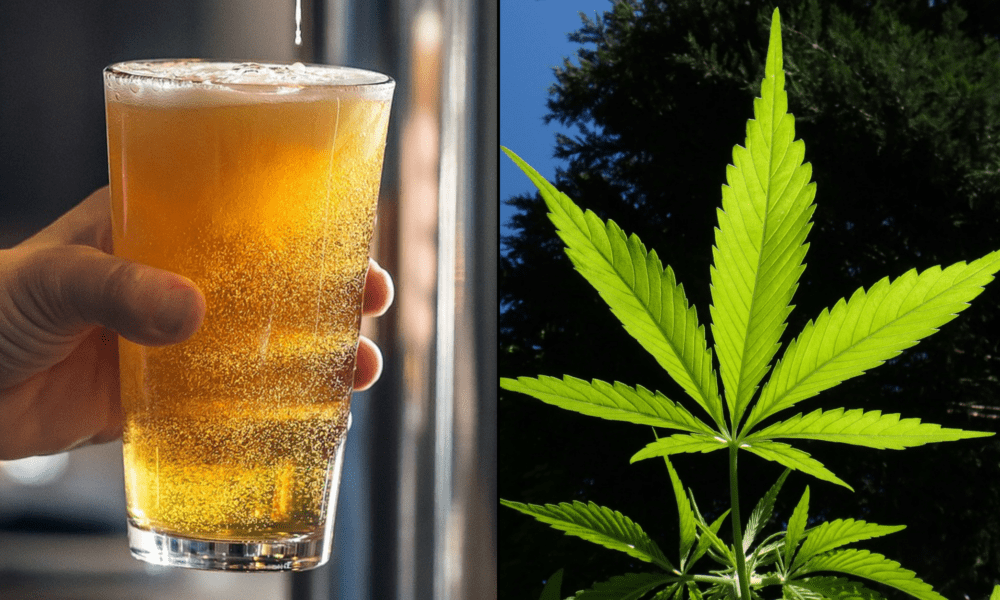
The cannabinoid CBD reduces rates of binge drinking and alcohol blood concentrations, a new study of mice indicates.
Using what they called a “murine drinking-in-the-dark” research model, scientists at the University of Sydney investigated the theory that non-intoxicating cannabidiol could mitigate problematic drinking issues.
“These experiments consistently showed a dose-dependent suppression of alcohol consumption by CBD,” the paper concludes. “The efficacy of acute CBD persisted for several months, was maintained during sub-chronic administration and was not associated with locomotor impairments.”
The study, published in the journal British Journal of Pharmacology with funding from the Australian National Health and Medical Research Council, found that “CBD represents a promising candidate to reduce voluntary alcohol consumption.”
“Mechanisms driving CBD’s alcohol-related effects remain unclear and may involve polypharmacology, including actions at the [neuropeptide S receptor] identified in the present study,” researchers said.
“The present findings showed a clear, dose-dependent inhibition by CBD of binge-like ethanol consumption in male and female mice. This effect was supported by [blood ethanol concentration] data and could not be attributed to sedation, because CBD did not alter locomotor activity. CBD suppressed drinking with acute administration, and the effect was maintained when CBD was administered sub-chronically, indicating the effect was not subject to tolerance.”
“CBD presents as a promising novel pharmacotherapy for problematic alcohol use; however, how CBD generates alcohol-related benefits is yet to be determined,” the study says. “Unravelling CBD’s mechanisms may direct the development of safer, more effective [alcohol use disorder] therapeutics.”
Results of a separate study published in the journal Molecular Psychiatry also indicated that a single, 800-milligram dose of CBD can help manage certain alcohol cravings among people with alcohol use disorder (AUD), supporting the use of the marijuana component as a potential treatment option for problem drinkers.
Federally funded research into the effects of cannabis on alcohol use that was published last month also found that people who used marijuana immediately before drinking subsequently consumed fewer alcoholic beverages and reported lower cravings for alcohol.
The study follows a separate survey analysis published in March that found that three in four young adults reported substituting cannabis for alcohol at least once per week—a “fast-emerging” trend that reflects the “rapid expansion” of the hemp product marketplace.
The report from Bloomberg Intelligence (BI) found that, across various demographics, cannabis is increasingly being used as an alternative to alcohol and even non-alcoholic beverages as more companies—including major multi-state marijuana operators (MSOs)—expand their offerings.
The findings were largely consist with a growing body of studies indicating that cannabis—whether federally legal hemp or still-prohibited marijuana—is being utilized as a substitute for many Americans amid the reform movement.
An earlier survey from YouGov, for example, found that a majority of Americans believe regular alcohol consumption is more harmful than regular marijuana use. Even so, more adults said they personally prefer drinking alcohol to consuming cannabis despite the health risks.
A separate poll released in January determined that more than half of marijuana consumers say they drink less alcohol, or none at all, after using cannabis.
Yet another survey—which was supported by the National Institute on Drug Abuse (NIDA) and released in December—found that young adults are nearly three times more likely to use marijuana than alcohol on a daily or near-daily basis.
That poll provided more granular, age-specific findings than a similar report published last year, finding that more Americans overall smoke marijuana on a daily basis than drink alcohol every day—and that alcohol drinkers are more likely to say they would benefit from limiting their use than cannabis consumers are.
A separate study published in the journal Addiction last year similarly found that there are more U.S. adults who use marijuana daily than who drink alcohol every day.
In December, BI also published the results of a survey indicating that substitution of cannabis for alcohol is “soaring” as the state-level legalization movement expands and relative perceptions of harm shift. A significant portion of Americans also said in that poll that they substitute marijuana for cigarettes and painkillers.
Another BI analysis from last September projected that the expansion of the marijuana legalization movement will continue to post a “significant threat” to the alcohol industry, citing survey data that suggests more people are using cannabis as a substitute for alcoholic beverages such a beer and wine.
Yet another study on the impact of marijuana consumption on people’s use of other drugs that was released in December suggested that, for many, cannabis may act as a less-dangerous substitute, allowing people to reduce their intake of substances such as alcohol, methamphetamine and opioids like morphine.
A study out of Canada, where marijuana is federally legal, found that legalization was “associated with a decline in beer sales,” suggesting a substitution effect.
The analyses comport with other recent survey data that more broadly looked at American views on marijuana versus alcohol. For example, a Gallup survey found that respondents view cannabis as less harmful than alcohol, tobacco and nicotine vapes—and more adults now smoke cannabis than smoke cigarettes.
A separate survey released by the American Psychiatric Association (APA) and Morning Consult last June also found that Americans consider marijuana to be significantly less dangerous than cigarettes, alcohol and opioids—and they say cannabis is less addictive than each of those substances, as well as technology.
Meanwhile, a leading alcohol industry association is calling on Congress to dial back language in a House committee-approved spending bill that would ban most consumable hemp products, instead proposing to maintain the legalization of naturally derived cannabinoids from the crop and only prohibit synthetic items.

Author: mscannabiz.com
MScannaBIZ for all you Mississippi Cannabis News and Information.

Marijuana And Drug Groups Press Meta About Shadowbanning And Censorship Of Content On Facebook And Instagram

DEA Museum Highlights Pen That Nixon Used To Sign Modern War On Drugs Into Law

CBD From Cannabis Could Help Reduce Alcohol Binge Drinking, Study Shows

Gen Z Is Ditching Relationship Labels While Millennials

Florida Lawmakers Pass Bill To Revoke Medical Marijuana Cards From People With Drug Convictions, Sending It To DeSantis’s Desk

North Carolina Lawmakers Advance Bill To Regulate Hemp THC Products And Restrict Kratom

Alaska Activists Launch Campaign To Put Psychedelics Legalization Measure On 2026 Ballot

Best dab rigs of 2025 by Leafly

High Times Magazine Acquired for $3.5M by RAW Rolling Papers Owner
Connecticut Man Busted with $8.5M Worth of Shrooms

Mississippi Choctaws to Elect Tribal Council Representatives

Delaware Lawmaker Withdraws Bill To Regulate Hemp-Derived THC Drinks

Mississippi AG Limits Sale of Consumable Hemp Products

Dallas-Area Officers Raid 3 Licensed Hemp Distribution Warehouses in ‘Enforcement Overreach’
The Counterculture Giant Reclaims Its Roots

Study: Daily Cannabis Consumers Exhibit Few Changes in Simulated Driving Performance Compared to Controls

Oregon Officials Will Appeal Court Decision That Overturned Marijuana Industry Labor Peace Law

Terrabis Opening 5th Illinois Dispensary in Mundelein

Texas Governor Still Won’t Say If He’ll Sign Hemp Ban Bill, But Thinks There Are ‘Meaningful’ Concerns On Both Sides Of The Debate

A Cannabis Match Made In Heaven

Vireo Growth Provides Corporate Update After Closing All Merger Transactions

Most Marijuana Consumers Oppose Trump’s Cannabis Actions So Far, But Rescheduling Or Legalization Could Bolster Support, Poll Shows

The Massachusetts Cannabis Trail: How The Fresh Connection Thrives in a Competitive Market

Interview with Anna Schwabe, PhD

Alert: Department of Cannabis Control updates data dashboards with full data for 2023

Connecticut Appoints The US’s First Cannabis Ombudsperson – Yes there is a pun in there and I’m Sure Erin Kirk Is Going To Hear It More Than Once!

5 best CBD creams of 2024 by Leafly

Free delta-9 gummies from Bay Smokes

EU initiative begins bid to open access to psychedelic therapies
New Study Analyzes the Effects of THCV, CBD on Weight Loss

Mississippi city official pleads guilty to selling fake CBD products

May 2024 Leafly HighLight: Pink Runtz strain

Curaleaf Start Process Of Getting Their Claws Into The UK’s National Health System – With Former MP (Resigned Today 30/5/24) As The Front Man

Horn Lake denies cannabis dispensary request to allow sale of drug paraphernalia and Sunday sales | News

5 best autoflower seed banks of 2024 by Leafly

Discover New York’s dankest cannabis brands [September 2024]

Press Release: CANNRA Calls for Farm Bill to Clarify Existing State Authority to Regulate Hemp Products

Local medical cannabis dispensary reacts to MSDH pulling Rapid Analytics License – WLBT

Nevada CCB to Accept Applications for Cannabis Establishments in White Pine County – “Only one cultivation and one production license will be awarded in White Pine County”

The Daily Hit: October 2, 2024

6 best CBD gummies of 2024 by Leafly

5 best THC drinks of 2024 by Leafly

5 best delta-9 THC gummies of 2024 by Leafly

Weekly Update: Monday, May 13, 2024 including, New Guide for Renewals & May Board meeting application deadline

People In This State Googled ‘Medical Marijuana’ The Most, Study Shows

PRESS RELEASE : Justice Department Submits Proposed Regulation to Reschedule Marijuana

Press Release: May 9, STIIIZY and Healing Urban Barrios hosted an Expungement Clinic & Second Chance Resource Fair

Thailand: Pro-cannabis advocates rally ahead of the government’s plan to recriminalize the plant
Trending
-

 California Cannabis Updates1 year ago
California Cannabis Updates1 year agoAlert: Department of Cannabis Control updates data dashboards with full data for 2023
-

 Breaking News1 year ago
Breaking News1 year agoConnecticut Appoints The US’s First Cannabis Ombudsperson – Yes there is a pun in there and I’m Sure Erin Kirk Is Going To Hear It More Than Once!
-

 best list11 months ago
best list11 months ago5 best CBD creams of 2024 by Leafly
-

 Bay Smokes12 months ago
Bay Smokes12 months agoFree delta-9 gummies from Bay Smokes
-

 Business9 months ago
Business9 months agoEU initiative begins bid to open access to psychedelic therapies
-

 cbd1 year ago
cbd1 year agoNew Study Analyzes the Effects of THCV, CBD on Weight Loss
-

 Mississippi Cannabis News1 year ago
Mississippi Cannabis News1 year agoMississippi city official pleads guilty to selling fake CBD products
-

 California1 year ago
California1 year agoMay 2024 Leafly HighLight: Pink Runtz strain

